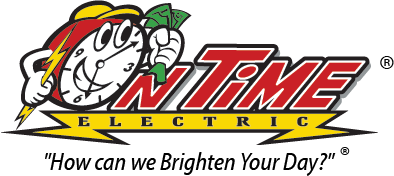Standby Generator Installation
Standby Generator Installation
CALL NOW TO SCHEDULE GENERATOR INSTALLATION SERVICES IN THE HOUSTON, TX AREA
Standby generators can be a good choice for homeowners who want to maintain power during power outages, especially if they have medical devices, frozen pipes, or food that could spoil.
Standby generators are typically larger than portable generators and can power an entire home. They are also more convenient and safer than portable generators because they turn on automatically, don't need to be manually started, and don't need to be refueled.
STANDBY GENERATOR QUESTIONS ANSWERED
What kind and size of generator should you get?
That all depends on the amount of power you’ll need. Backup generators vary in power, weight, portability, fuel efficiency, noise, etc. Below are a few generators you could get, plus their characteristics:
Portable generators (requires a
generator inlet)
- Small, easy to move around
- Temporary power
- Powered by gas or diesel fuel
Standby generators
- Operates automatically
- Permanent power protection
- Monitors utility power, utilizing automatic transfer switch when needed
Inverter generators
- Portable, quieter
- Capable of less power
- Cleaner power
What generators are the quietest?
Noise will always be a concern when you’re buying a generator. It’s a natural byproduct. However, there are quieter models. Generally, an automatic standby generator is a quiet option. But the quietest option is a portable, inverter generator, because they are smaller and have less power.
When are generators used?
Generators can be used for several purposes, depending on your business.
The two most common uses we see are:
- Standby power for your business
- Temporary power for construction sites
Unless you’re a construction company, you’ll most likely want a standby generator since it provides permanent power protection for your business. But if the location of your business changes, as is the case for construction sites, portable generators will be your best bet.
How much do generators cost?
The cost largely depends on the size of the generator and the amount of power you’ll need. On average, generators for a small business can cost $2,000+. Larger, industrial businesses will need much more power. Those can cost anywhere from $15,000-$50,000, possibly more. Don’t forget to factor in maintenance costs as well.
How do you safely operate a backup generator?
Generators, like any electrical machinery, require care in order to operate properly and safely.
They can be dangerous to operate by yourself. That’s why we recommend professional installation. You should also get an automatic transfer switch, so none of your employees need to work with it. We also recommend hiring a company like Power Plus to maintain it for you in order to ensure it runs properly when you need emergency power.
Are generators efficient?
Depending on your power needs and the backup generator you buy, the fuel efficiency can vary. Inverter generators in particular run on cleaner power.
